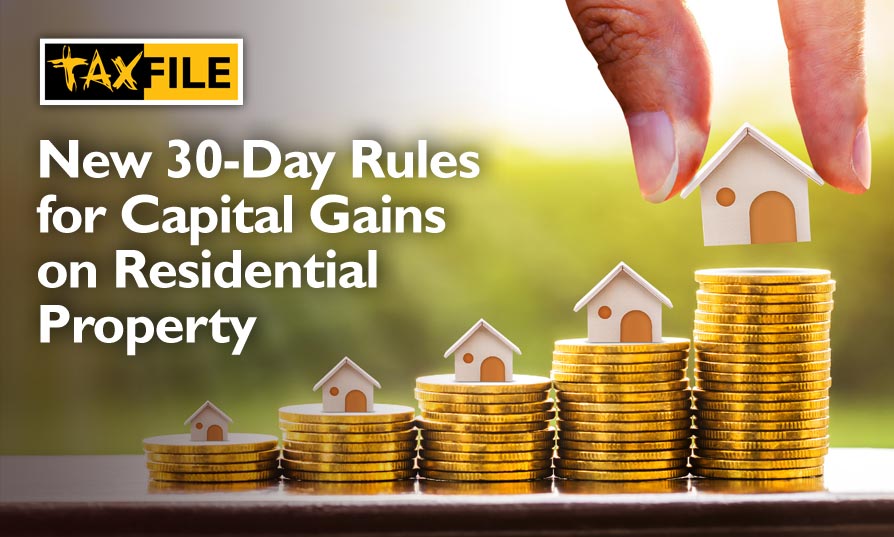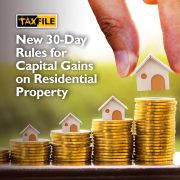New 30-Day Rules for Capital Gains on Residential Property

New rules have now come into force in relation to capital gains made on disposals of UK residential property*. Several key actions are now required if a taxable capital gain has arisen, including some that now need to be made fast:
- Taxpayers need to report the property’s disposal within 30 days of the actual disposal;
- They will need to pay the estimated Capital Gains Tax (‘CGT’) to HMRC within 30 days of the disposal.
- Those who fill in and submit a Self-Assessment tax return will also need to include details of the disposal on their return.
Who Do the New CGT Rules Apply To?
The new rules apply whether you’re an individual, joint property owner, trustee, partner in a partnership or LLP, or a personal representative.
What Counts as a Residential Property Disposal?
The new rules apply to all UK residential property that was disposed of (taken as the date of the exchange of contracts) since 6 April 2020 inclusive, where a capital gain was made that will require payment of CGT.
To fall within the rules, a UK residential property must be one that:
- is suitable for use as a dwelling, or;
- is being built or adapted for use as a dwelling.
It can be one in which the the owner has never lived or has lived for only part of the period they owned it. It can also be a rental property or a holiday home.
Where a property has been used for mixed purposes, only the capital gain that’s equivalent to Read more



